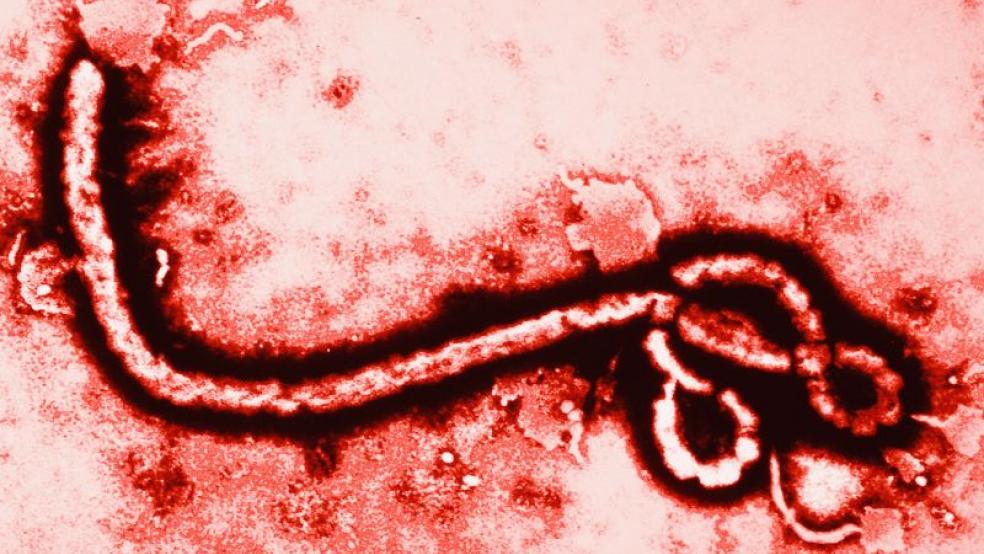At least 826 people have died in West Africa from the Ebola virus. Even though the number is expected to rise, it's still more deaths than any previous outbreak of the deadly disease. And that ironically, may be why there's no vaccine or treatment available.
"Prior episodes burned themselves out with fewer deaths after a shorter time," said Dr. Aileen Marty, an infectious disease professor at Florida International University.
Related: U.S. Hospital Takes First American Ebola Patients
"That's meant less of a feeling that a vaccine should be on the market," she explained. "There's no money in it. But it's such a horrible way to die."
Experts say there are Ebola treatments and vaccines in various testing stages at several U.S. research centers, mostly funded by the government. Most of the drugs have been tested so far mostly on animals, with no target date for availability.There are a few small American companies developing treatments, such as BioCryst and NancoViricides, One Canadian firm, Tekmira, is also working on a treatment, with funds from the U.S Defense Department. Larger outfits have shied away.
"It's tough to develop these drugs because they might not even be used," said Dr. Chris Milne, director of research at the Tufts Center for the Study of Drug Development.
Milne said that pharmaceutical companies can spend millions in developing flu vaccines that get thrown away because they're ineffective on new virus strains.
Related: U.S. Doctor Stricken with Ebola Said to Be Improving
"It's a lot of time, effort and money to develop something like an Ebola vaccine with little guarantee of a profit," he said.
Heading to Sierra Leone
Just this weekend, the Centers for Disease Control said the Ebola virus is out of control and has advised against non-essential travel to West Africa. FIU's Marty is likely to arrive over the next couple of weeks in Sierra Leone, one of the countries hit by the virus. She's on a list of doctors taking part in the new $100 million effort by the World Health Organization to treat Ebola patients.
This comes as two American aid workers have been diagnosed with the virus and one of them treated in an isolation unit at Emory University in Atlanta, Georgia. He is said to be in a critical phase of the disease, but improving.
"If we could get approval from the governments in West Africa, this could be a perfect way to try the vaccines out," said Marty. But so far, Marty said, that permission has yet to come.
Related: African Leaders Agree Steps to Fight Runaway Ebola Outbreak
Asked if she had fears about going, she said it's natural to be afraid. "I've made my plans, like insurance and next of kin, but I'm feeling confident we'll be protected over there with good equipment and proper hygiene," she explained.
High Mortality Rate
Ebola is a severe and nearly always fatal disease to humans, according to WHO. There are several strains with an incubation period of up to 21 days after infection. Symptoms include fever, weakness, muscle pain, headache and sore throat. This is followed by vomiting, diarrhea, rash, impaired kidney and liver function and, in some cases, both internal and external bleeding.
Transmission of the virus happens in several ways. Humans and animals can be infected by fruit bats, which are believed to be the first hosts of the virus. Humans can get it from infected animals, either by slaughtering the animals or through consumption of blood, milk, or raw or under-cooked meat. Between humans, the virus can be passed from person to person through touch, contact with body fluids, or contact with contaminated needles.
Funeral Practices are 'Transmitters'
More than 1,300 people have been infected with Ebola over the last three months. This recent outbreak is believed to have started in Liberia. The government there has called the crisis a national public emergency and has urged citizens to follow health guidelines. Sierra Leone has declared a state of emergency and called in troops to quarantine Ebola victims.
This outbreak has become extremely dangerous, said experts, because the virus has spread to more populated areas than in the past. Liberia has threatened to arrest those who hide Ebola victims. Some residents are said to be removing patients from hospitals for special prayers or to treat them with local medicine.
"One of the main transmitters are the funeral practices," said Dr. Steven Vryhof, who returned last month from Liberia after working there for two weeks with the medical aid group, Mission to Heal. Vryhof said many people insist on burying the dead, which means shaving the men and braiding women's hair and so exposing themselves to the Ebola virus.
Americans Should Be 'Prepared'
As to fears the Ebola virus could spread to the U.S, it's been here before. In the years 1989, 1990 and 1996, Ebola was found in quarantined monkeys imported from the Philippines. But no human infections were discovered. Even as one aid worker gets treatment in Atlanta, experts say the virus is unlikely to spread.
Related: Ebola Outbreak Not Hurting Investment in Sierra Leone
"We have a sophisticated infrastructure of isolation and other precautions that would prevent outbreaks here," said Dr. Pascal James Imperato, of the SUNY Downstate Medical Center.
But Americans should be on the alert, said Dr. Cecilia Rokusek, assistant dean for education, planning and research at Nova Southeastern University. We can no longer become complacent to any public health danger anywhere," she said.
This article originally appeared in CNBC.
Read more at CNBC:
Millennials are dragging down homeownership
Obama says economy is 'booming,' takes credit for record growth
Barack Obama: The new trickle-down president?




